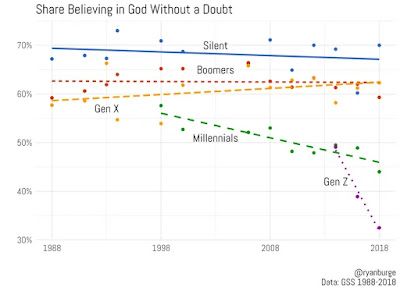1960s student protests - revolution or distraction?
I am enjoying writing in this blog. It is satisfying, even if no one reads it yet. But it is slow, and I haven't even touched on some of the themes I hope will become central to my purpose in writing this blog. I haven't even written anything to explain the title of the blog. But since no one reads this blog anyway, I don't think anyone is complaining.😂 Instead I spent a lot of time on two topics that I think will be themes in my writings here - history, and the idea of Christianity under siege by cultural and institutional forces. I spent some time trying to understand for myself why the study and teaching of history is so different today from what what it was in the mid-1900s - more specifically, why certain pro-Christian and pro-Western approaches to history have been banished to obscurity in academia. (see here and here ) I called this the "History Coup." That term seems quaint now that I have some understanding of the broad and cataclysmic sweep of the soc
